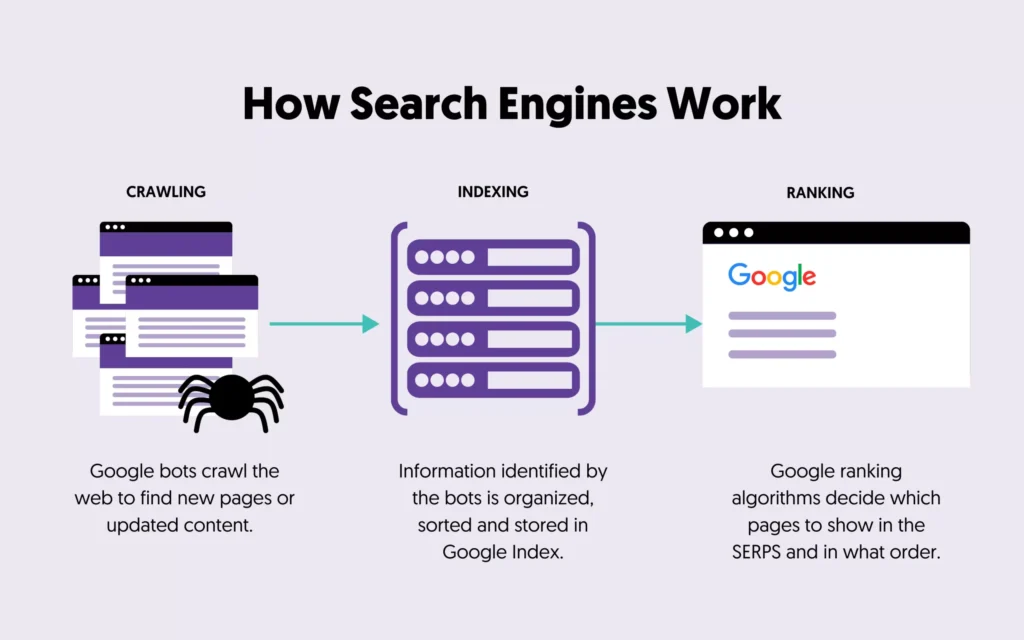Understanding the Basics of Search Engine Algorithms
In the rapidly evolving world of digital marketing, understanding Search Engine Algorithms is crucial for anyone aiming to boost their online presence. These algorithms are the secret sauce behind search engine results, determining which web pages appear at the top of search engine results pages (SERPs). As 2024 unfolds, grasping the basics of these algorithms can give you the edge you need to enhance your SEO strategy and drive more organic traffic. Let’s dive into the fundamentals of Search Engine Algorithms and how they influence your search engine ranking.

1. What Are Search Engine Algorithms?
At their core, Search Engine Algorithms are complex systems used by search engines like Google, Bing, and Yahoo to rank web pages in their search results. These algorithms evaluate numerous factors to decide which pages are most relevant and useful for a given query. They are designed to deliver the best possible user experience by providing the most pertinent results based on the search terms entered. Understanding these algorithms helps you optimize your content to align with what search engines are looking for.
2. Key Components of Search Engine Algorithms
Several key factors influence how Search Engine Algorithms rank pages:
- Relevance: Algorithms assess how well your content matches the search query. This includes keyword relevance, but also the context and intent behind the search.
- Quality: High-quality content that is informative, engaging, and well-researched tends to rank better. Algorithms prioritize content that offers value to users.
- Authority: Search engines evaluate the credibility of your site based on factors such as backlinks from reputable sources and domain age. Authority signals that your content is trustworthy and reliable.
- User Experience: Factors such as page load speed, mobile-friendliness, and site navigation impact your rankings. A seamless user experience is essential for good rankings.
3. The Role of Keywords in Search Engine Algorithms
Keywords have historically been a cornerstone of SEO, but their role has evolved with advances in Search Engine Algorithms. Modern algorithms focus on keyword intent rather than exact matches. This means that optimizing for contextually relevant keywords and providing comprehensive answers to user queries are more important than ever. Long-tail keywords and natural language processing (NLP) are becoming increasingly significant as algorithms strive to understand the nuances of user intent.
4. The Importance of Quality Content
Content quality is a major player in the ranking game. Search engines are designed to prioritize content that provides value to users. This means creating content that is not only relevant and well-written but also engaging and useful. High-quality content includes detailed information, clear structure, and unique insights that address the needs and questions of your audience. As algorithms become more sophisticated, they increasingly reward content that meets these high standards.
5. Understanding Algorithm Updates
Search engines frequently update their algorithms to improve search results and combat spam. These updates can significantly impact your site’s ranking, so staying informed about changes is crucial. Major updates, such as Google’s Panda, Penguin, and Hummingbird, have historically focused on content quality, link-building practices, and semantic search, respectively. Keeping up with these updates helps you adapt your SEO strategy and maintain strong search rankings.
6. The Impact of User Engagement Metrics
User engagement metrics such as click-through rate (CTR), bounce rate, and time on site play a role in how Search Engine Algorithms evaluate your content. If users click on your link and spend time engaging with your content, it signals to search engines that your page is relevant and valuable. Conversely, high bounce rates or low engagement can indicate to algorithms that your content may not be meeting user expectations.
7. Mobile Optimization and Algorithm Performance
As mobile search continues to grow, search engines have placed increased emphasis on mobile optimization. Search Engine Algorithms now consider mobile-friendliness as a critical ranking factor. This means that having a responsive design, fast-loading mobile pages, and easy-to-navigate interfaces is essential for maintaining strong rankings. Google’s mobile-first indexing, for example, primarily uses the mobile version of your site for indexing and ranking.
8. Leveraging Backlinks for Authority
Backlinks remain a powerful factor in SEO, reflecting the authority and credibility of your site. Search Engine Algorithms evaluate the quality and relevance of backlinks to determine how trustworthy your site is. Building a strong backlink profile from reputable sources can enhance your site’s authority and improve your rankings. However, it’s important to focus on natural, high-quality backlinks rather than engaging in manipulative link-building practices.
9. The Future of Search Engine Algorithms
Looking ahead, Search Engine Algorithms are likely to continue evolving with advancements in AI and machine learning. These technologies enable search engines to better understand user intent, context, and content quality. Voice search, visual search, and AI-driven personalization are expected to play increasingly prominent roles in how algorithms assess and rank content. Staying ahead of these trends and adapting your SEO strategy accordingly will be key to maintaining a competitive edge.
Understanding Search Engine Algorithms provides valuable insights into how search engines determine rankings and how you can optimize your site to improve visibility. By focusing on relevance, quality, user experience, and staying updated with algorithm changes, you can enhance your SEO efforts and drive better results for your business. Embrace these fundamentals to navigate the ever-changing landscape of search engine optimization and achieve success in the digital world.


